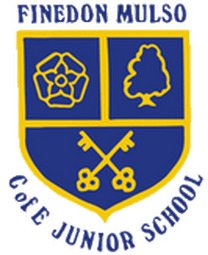MFL French
Modern Foreign Languages – French
‘Learning a foreign language is a liberation from insularity and provides an opening to other cultures. A high-quality languages education should foster pupil’s curiosity and deepen their understanding of the world.” - The National Curriculum
We grow in French because:
Today, with the improvement in transport and the significant role travel now plays within people’s lives, children are increasingly likely to visit different countries within their lifetime. Therefore, exposing them to modern foreign languages is no longer a luxury, but a necessity: one which prepares them for the world beyond our school, raises the aspirations they develop for their lives, and broadens the possibilities on offer to them. It provides them with opportunities to communicate for practical purposes, challenges them to learn new ways of thinking and potentially inspires them to – one day – read great literature in the original language. Whether they put this into practice in later life or not, we see the value that learning a modern foreign language has in improving pupils’ self-esteem and encouraging better interpersonal skills here and now.
At Irthlingborough Junior School, we have chosen that language to be French. Through French we aim to show the children that there are other cultures and encourage them to be curious in and gain a deeper understanding of the wider world. Indeed, our curriculum vision is to provide a high-quality education in French by understanding and responding to spoken and written language from a variety of authentic sources. To speak with increasing confidence, fluency and spontaneity, finding ways of communicating what they want to say, including through discussion and asking questions, and continually improving the accuracy of their pronunciation and intonation. In addition, we will encourage children to write at varying length, using a variety of grammatical structures that they have learnt.
We grow in French by:
- Listening to spoken language and showing understanding by joining in and responding.
- Exploring the patterns and conventions of language by focusing on the spellings, sounds and meanings of words; engaging in conversations; asking and answering questions; and seeking clarification and help.
- Using language to help us express our own ideas and thoughts in new ways, and responding to those of others
- Speaking in sentences, using familiar vocabulary, phrases and basic language structures.
- Developing accurate pronunciation and intonation so that others understand when they are reading aloud or using familiar words and phrases.
- Reading carefully and showing understanding of words, phrases and simple writing.
- Broadening our vocabulary and developing the ability to understand new words that are introduced into familiar written material, including through using a dictionary.
- Writing phrases from memory, and adapting these to create new sentences, to express ideas clearly.
- Describing people, places, things and actions both orally and in writing.
- Understanding basic grammar (including feminine, masculine, the conjugation of high-frequency verbs, key features and patterns of French), how to apply this to build sentences and how this differs from or is similar to English.
We grow in French when:
At Irthlingborough Junior School, French is taught through the 3 pillars: vocabulary, phonics and grammar. This ensures children not only have a good vocabulary but can speak accurately, pronouncing the words accurately and forming their sentences grammatically correct. Teachers use a combination of a curriculum developed within the school and Kapow as a starting point for the planning. Knowledge and skills are mapped across each topic and year group to ensure systematic progression. The implementation of the curriculum also ensures a balanced coverage of vocabulary, phonics and grammar. The children will have experiences of all three strands in each year group, and the subject knowledge is relevant to the topic area being studied that term.
To facilitate this learning, we also have access to linguascope to develop both vocabulary knowledge and pronunciation. In addition, we are using the Physical French phonics scheme to support phonic awareness when speaking French.







